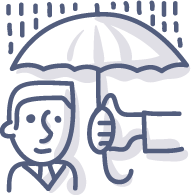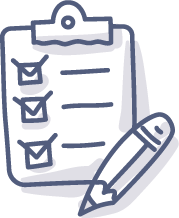The Capital city of Kenya is Nairobi.

Time Difference
Kenya is 3 hours ahead of GMT.

Visa & Passport Information
Make sure you have a current and valid passport, that it is not about to expire. Expect that your passport could take up to six weeks to arrive, so make sure you plan well in advance for your passport needs. As a rule, your passport should expire no sooner than six months before the end your travel.
When making preparations for your passport, it is advisable to make several copies of the actual passport or visa (in addition to the original). This is for your own safety because the last thing you want to do is to be out of your home country without any way to provide proof of your identity, should you lose your passport. You should leave one of the copies at home before you travel, just in case.
When you travel with the original passport, always keep it locked up safely, in a hotel safe or other secure location. Before you leave for Kenya, make sure you have the following: Valid Passport, Arrival Ticket, Return Ticket, Adequate Funds, Visa
Visas are required for all visitors to Kenya, EXCEPT for Nationals of the following countries who do NOT need a Kenya visa:
Bahamas, Bangladesh, Barbados, Botswana, Brunei-Darussalam, Cyprus, Dominica, Ethiopia, Fiji Islands, Gambia, Ghana, Grenada, Jamaica, Kiribati, Lesotho, Malawi, Maldives, Mauritius, Namibia, Nauru, Papua New Guinea, Samoa, San Marino, Seychelles, Sierra Leone, Singapore, Solomon Islands, St Lucia, St Vincent & The Grenadines, Swaziland, Tanzania, Tonga, Turkey, Tuvalu, Uganda, Uruguay, Vanuatu, Zambia, Zimbabwe
Nationals of all other countries require a visa. Visas can be obtained on arrival at the airport in Nairobi or Mombasa, EXCEPT for citizens of the following countries who DO need to have a visa prior to arrival in Kenya:
Afghanistan, Armenia, Azerbaijan, Senegal, Somalia, Iran,Lebanon, Iraq, Syria, Libya, Mali, Sudan, Nigeria, Yemen, Cameroon, Pakistan, Tazikstan, North Korea

Average Climate
During your safari to Kenya you will cross several weather zones: Nairobi – cool and dry, Mt. Kenya – chilly, Masai Mara – pleasant weather but chilly during the early morning game drives. Our rainy season is from November – December and April – June that involves short light showers that stop within an hour or so.
Please prepare your clothes accordingly. Informality is the keynote. Be prepared for cool evenings at higher altitudes and on safari, try to wear neutral colors as much as possible. Green, beige and khaki are best not to startle the game. A hat and a pair of sunglasses are advisable for protection against the sun. Laundry can be done at most lodges. Light comfortable shoes are important.

Health Advice for Kenya
Before you travel to Kenya, make sure that you are up to date on all immunizations. Although there are currently no inoculations that you must have when traveling to Kenya apart from Yellow Fever which is a must to have the card before arrival to the country. If you intend to visit other countries such as the Democratic Republic of Congo, Rwanda, Egypt, or other such areas that may be deemed infected, you will need inoculations. In such cases, you should make sure you have the following immunizations (Depending on the specific area you intend to visit):
• Hepatitis (A and B)
• Typhoid
• Tetanus
• Yellow Fever
• Malaria Prescription
Other health advice when traveling to Kenya is to make sure you protect yourself from mosquito bites, which could lead to malaria. Some protective measures against mosquito bites include wearing long sleeved shirts/blouses and long pants, using mosquito repellent with a minimum of 30 percent DEET, and using mosquito nets.
If you will be traveling to the Kenyan coast or Western Kenya, it is advisable to take anti-malaria pills. Look into purchasing travel and medical insurance while abroad, just in case something happens. These types of short-term insurance services are available through some travel agencies and medical insurance companies. They may also be part of the services you already receive with your credit cards, so check with your credit card company. It is better to play it safe than end up sorry.

Currency Conversion
The currency of Kenya is the Kenya Shilling (KES).

Languages Spoken
Kiswahili is the National language and English is widely spoken.

Entertainment & Night Life
Nairobi offers the most choices for entertainment in Kenya, with an assortment of casinos, nightclubs, and movie theatres. The main theatres offer Hollywood features, with an assortment of Bollywood films showing in many of the cinemas. Nairobi and Mombasa both offer a good selection of dance clubs. Some clubs offer live entertainment in Nairobi, otherwise most feature discos with a DJ. Local theatres are located in Nairobi and Mombasa, providing productions of popular plays. Many hotels and lodges provide evening entertainment. Often this will include traditional tribal dancing.

Getting Around
Air: Kenya has a good network of domestic flights. These airlines serve the coast, major game parks and Western Kenya.
Taxis: In Nairobi, Mombasa and other large towns, taxis are widely available, and convenient. Taxis are often parked in the street around hotels and tourist areas. Nairobi taxis are usually marked with a yellow line along each side. Taxis are not metered, and a price should be agreed with the driver before departure.
Matatu: The most common form of public transport in Kenya is the Matatu, which has become a national icon and a large part of Kenyan modern culture. A Matatu is a minibus, usually a Nissan.
Rail: Kenya has a railway connection between Nairobi – Mombasa and Nairobi – Kisumu. The overnight Nairobi – Mombasa rail trip is the most popular rail route for visitors.

Packaging List
Proper planning and packing is the key to a safe and comfortable trip to Kenya. Make sure you keep the following in mind when packing for your trip.
Remember that Kenya has a tropical climate. You should prepare yourself for a wide variety of conditions that may include dust, and wet, hot and/or cool weather. Put careful thought into your preparations and pack accordingly depending on your reason for traveling to Kenya and the activities you intend to participate in. Furthermore, make certain that your luggage can withstand harsh conditions as well, particularly if you intend to travel to different parts of the country. You also need to keep the requirements of the airline you will be flying with in mind. And don’t forget to leave some space to bring back gifts!
Here are some basics to have when packing for your trip to Kenya:
• Camera
• Basic essentials
• Comfortable, lightweight, and casual clothes (if you are on a safari, neutral is best, bright and bold is not)
• Comfortable and strong shoes or boots
• Brimmed hat
• Sunscreen
• Insect repellent
• Formal / Occasional wear (depending on your reason for travel)
• Toiletries
• Prescription medication
• Sunglasses (and a spare pair)
• Medical kit (for exploration)
• Swiss Army Knife (for exploration)
• Flashlight (for exploration)
• Video camera and accessories
• Binoculars
• Travel documents – passport, visa, others
• Vaccination Certificates
• Insurance Documents
• Traveler’s cheques
• Credit / Debit cards

Safety & Security
You always want to be aware of your surroundings when traveling away from home. Travelling to Kenya is no different. Be vigilant when in public places and even more when venturing out at night. In case of robbery, report the incident at the nearest police station. Kenya has a Tourist Safety and Communication Center that is always on call. They offer a 24hr tourist helpline (02-604767) where you can seek assistance if needed. The Tourist Safety and Communication Center is available to help with updates, travel advisories, road conditions, health issues, and security. Please contact them if you have any trouble during your visit to Kenya.

Kenya Travel Tips – Travelling Do’s and Don’ts
• We understand that you want to take as many pictures of the beautiful country as possible, but before you begin to take pictures of houses or people, ask for their permission. In some cases, you may be required to offer a tip for those pictures.
• Watch your money. Make sure that, when switching currency you do so in a reputable hotel, foreign exchange bureau or bank.
• Do not display your valuables to the world; this will keep you from being the target of theft.
• Only carry what you need in regards to money when venturing out.
• Keep yourself “undercover” – do not display jewelry.
• If you are going on a safari, watch your clothing choices. Bright colors (such as whites and blues) attract wild animals as well as insects. Camouflage clothing, is in some cases, illegal to wear.
• Never approach a wild animal, even if they appear harmless.
• Drinking water – it is safer to drink bottled or mineral water.
• Tipping is OK although not mandatory in most places. A tip of $5 (or equivalent) is acceptable for most services.

















